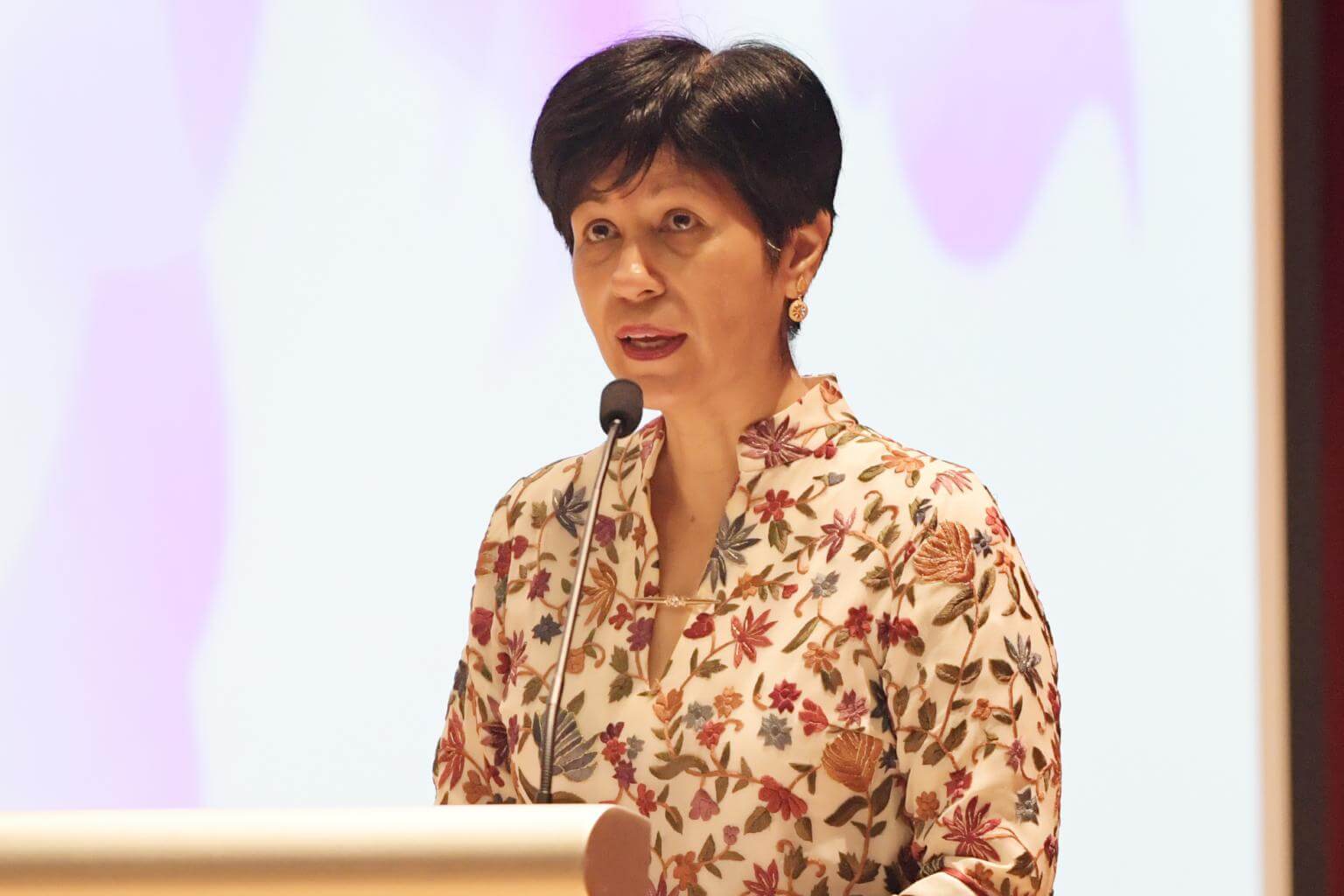Singapore's unique middle way: Indranee
Fruits of economic growth used to build fair, inclusive society, says Minister in PMO
Sign up now: Get ST's newsletters delivered to your inbox

While the economy is based on free-market principles, the fruits are harnessed to build a fair and inclusive society, said Minister in the Prime Minister's Office Indranee Rajah.
PHOTO: ST FILE
Despite its generally low taxes, Singapore is still able to achieve social outcomes - in education, healthcare, and home ownership - beyond that of other countries.
This is the result of "a carefully calibrated combination of maintaining a broad tax base, diverse sources of revenue, viable economic strategies, sound governance, and fiscal prudence", said Minister in the Prime Minister's Office (PMO), Ms Indranee Rajah, in a commentary in today's The Sunday Times.
And while the economy is based on free-market principles, the fruits are harnessed to build a fair and inclusive society, she added.
Ms Indranee, who is also Second Minister for Finance and Education, was responding to a commentary on Singapore's socialist roots by Harvard professor Steven Kelman, published in last Sunday's papers.
While he praised Singapore's growth and alleviation of poverty, Prof Kelman said he was worried that today's Singapore has "moved from being a cause to being more of a corporation", and noted how the People's Action Party (PAP) had undergone a shift in ideology from being socialist democrat.
In response, Ms Indranee said that the PAP government "remains true to its mission of a fair and just society, by creating opportunities for all, redistributing wealth according to need, and effective social spending".
She added that despite Singapore's generally low tax rates, expenditure by social ministries has doubled between Financial Year (FY) 2009 and FY2018.
This is achieved in three ways: First, supplementing the revenue by the Net Investment Returns Contribution (NIRC) - the income on the reserves. The NIRC has more than doubled from $7 billion in FY2009 to $16 billion in FY2018, Ms Indranee said.
Second, Singapore maintains fiscal prudence and avoids high debt, and, third, taxes are collected and used effectively, she noted.
While Prof Kelman noted how Singapore's corporate tax rate was 40 per cent until 1987, and progressively lowered, Ms Indranee pointed out that reinstating this would be a "crushing burden on our companies and render us uncompetitive, resulting in loss of investments, jobs and revenues".
She added: "We are not preoccupied with growth for growth's sake, but because growth creates jobs and gives our people good incomes while generating the tax revenues necessary to help our elderly, vulnerable and disadvantaged and meet other vital public needs like defence and infrastructure."
A fair and progressive system is maintained and half of Singapore's working population does not have to pay taxes, she noted.
"Of those who do, the ones who earn more, pay more. On redistribution, we ensure that those who need more, get more," she said.
"If we were truly an unbridled corporation, we would not put back revenue from land sales into past reserves, or refrain from using up all the income from our reserves. But we do, because we believe that we must keep something for our children and grandchildren.
"For the PAP government, Singaporeans and Singapore remain very much our cause. Our means may be capitalist but our objectives and goals are caring and compassionate... Ours is a middle way uniquely our own," she concluded.


